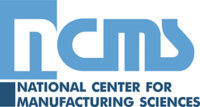CTMA Project #: 140163, 140318
Problem: The primary goal of this project was to develop and install the basic tools required to support a material state management approach upon which the substitution methodology is based. Existing legacy approach specifies only the processing time and temperature without identifying the effects on the material properties. Without knowledge of the effect of a process change on product performance, it is not possible for the responsible parties to approve a change to the process.
If a significant process change is needed, the legacy methodology requires a lengthy search through the design data and material pedigree, back to the original qualification data. These searches are costly and frequently exceed the time available for repair. The result is that raw materials and finished products are often scrapped because of an inability to demonstrate “acceptability” even if they actually meet all performance criteria. This has a deterrent effect on any improvement that involves a significant change to the process. It contributes to cost because potentially “good” materials and components are rejected and scrapped for lack of acceptance. Lastly, optimization of the process that will produce the best product is not possible since it is the process itself that is specified not the process outcome.
Benefit: The Process Substitution Methodology project for composite materials provided immediate benefit to the Department of Defense (DoD) war fighting capability during missions in Afghanistan, Kosovo and Iraq. Rapid revisions were made to process methods for the Predator B unmanned air vehicle (UAV) that eliminated periods when the weapons system could not be operated. This greatly reduced vulnerability of the system to attack.
Solution/Approach: The material state management approach provides production personnel and support engineers the ability to view the effects of changes in process on the cure rate and cure state of the composite. This enables rapid decisions because the material state data relates directly to the process outcome and to the performance of the structure.
The material state based process substitution methodologies developed during this project were used by General Atomics (GAT) to revise processing methods for the Predator UAV currently deployed in major combat areas. GAT has initiated acquisition of the software and control system upgrades for all of its major production ovens and autoclaves.
Corpus Christi Army Depot has installed the controls and software on a production autoclave visible from within the composites laboratory. It was intended that this autoclave system be interconnected with a legacy rheometer for operation by senior lab personnel in conjunction with the operation of the production autoclave. The goal was to provide services to the Army in a similar fashion as the ACO in Ogden.
OC-ALC has provided resources for material state characterization by the University of Oklahoma. This work was carried out at AvPro and used to support substitutions of processes for the B-1B and the Predator UAV.
Impact on Warfighter: Weapons Systems are favorably impacted by greater availability, reliability, and cost and cycle time savings.
DOD Participation:
- U.S. Army – Corpus Christi Army Depot
- U.S. Air Force – Advanced Composites Office, Ogden ALC; Oklahoma City ALC
Industry Participation:
- AvPro
- Kestrel Aircraft Company
- General Atomics
- Aerostructures, Inc.
- NCMS




